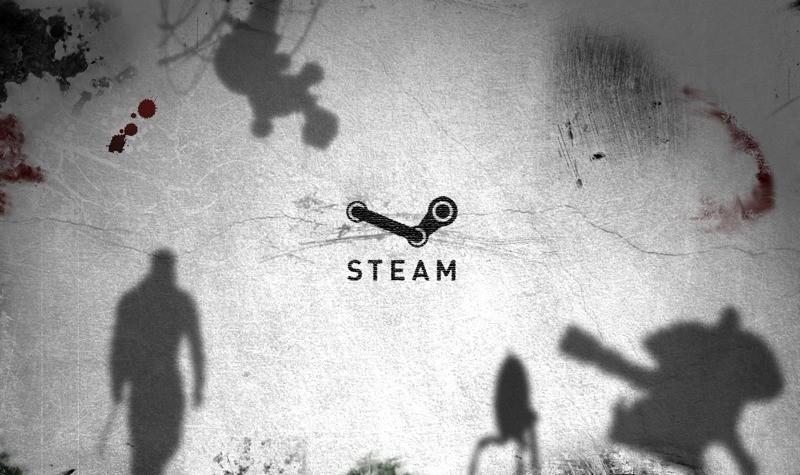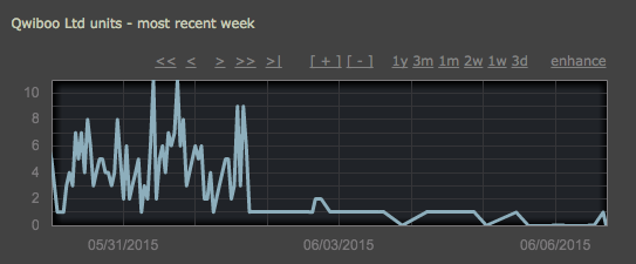
 Steam refunds are a thing now, and they’ve proven pretty divisive. Some creators of smaller games are worried that the policy is too easy to exploit. But what do the numbers say?
Steam refunds are a thing now, and they’ve proven pretty divisive. Some creators of smaller games are worried that the policy is too easy to exploit. But what do the numbers say?
Steam refunds—previously offered rarely and on a case-by-case basis—can now be requested under almost any circumstance provided players have 1) spent two hours or less with the game and 2) owned the game for two weeks or less. The feature’s been in the wild for nearly a week, and developers have started reporting stats, with some claiming that their refund rate has skyrocketed to anywhere between 30 and 70 percent.
The developers of Revenge of the Titans—a well-liked strategy tower defense game that’s been out since 2011—saw an unexpectedly large uptick in refunds. “55% refund rate on RoTT alone. Versus five refunds in 10 years direct,” they tweeted.

Meanwhile, Qwiboo, developer of a procedurally generated space platformer called Beyond Gravity, chimed in with an even higher stat. “Out of 18 sales 13 refunded in just last 3 days. That’s 72% of purchases. Rate of refunds before was minimal,” they tweeted.

Matt Gambell of RPG Tycoon paired his stat—”In these first 7 days of June out of the 60 average units sold, over 20 of those have claimed a refund”—with an observation about what he’d like to see out of Valve’s system: a better explanation as to why people asked for a refund of his game. That way, he could try to learn and improve—or at least patch any holes users find in his ship.
Initially, this data doesn’t really show much except the fact that people ARE almost instantaneously using this refund feature. It’s also worth mentioning that 7 of those refunds show no purchase data (which would only mean that these are claims on the game purchased towards the end of May) and the other refunds were interesting. Looking at sales data it’s not unusual for some users to purchase multiple copies of the game (I imagine for gifting to other players) however one user purchased the game 7 times and then refunded 5 of them. (Did they buy 6 copies for friends, only to find that 5 of them already had it?)
This is part of the problem. There’s no way of knowing WHY users have claimed a refund. There’s no communication with me as a developer. I have so many questions… Could it be that they were having technical issues? Is it something that could have been solved by talking to me? Did they ACTUALLY mistakenly buy 7 copies of the same game, is that even possible?
He also worried that developers of DRM-free games—that is, games that don’t actually require Steam to run—might consider turning to DRM due to the ease with which someone can now make a copy of their game and then get a refund on Steam.
Cliff “Cliffski” Harris of Democracy and Gratuitous Space Battles fame echoed that concern, albeit with a significantly lower refund percentage. He tweeted:
Also read: Steam Refunds: Friend or Foe? An indie developer's perspective..
“Bloody hell steam refund rate has gone from 0.09% to 17%. Methinks people are taking the piss. Here comes DRM again sadly.”
Others like Phil Tibitoski, president of the company that created Octodad, offer a slightly less alarmed reaction. “Hoping it’s just an initial surge, but we got a 30% return rate since refunds were implemented. (For copies sold on sale a while ago.),” Tibitoski said on Twitter. “We’re not panicking, but are trying to understand and find a correlation to guess as to why they were returned.”
He added that it seems like Valve is also approving refund requests for games purchased months ago and played for more than two hours. An odd wrinkle if accurate, and one I’ve mailed a question to Valve about. For now, though, it’s worth noting Valve’s announcement post on refunds does include this bit: “Even if you fall outside of the refund rules we’ve described, you can ask for a refund anyway and we’ll take a look.”
Now, it’s important to note that these stats alone do not necessarily indicate that people are abusing the system. There was bound to be a sizable uptick in refunds after Valve lowered the barrier to entry. On top of that, many of the above games—while made by smaller developers—are not inherently short. Revenge of the Titans, RPG Tycoon, and Democracy are all about replayability. Things will get far more interesting (and telling) after a few weeks or months have passed and we’re able to measure how often people are saying, “shut up and un-take my money” and what sorts of games they’re most frequently doing it with.
For the moment, all we can know for certain is that people are definitely making use of Steam’s new feature. That’s not a bad thing, nor is the idea of refunds on the whole. But it does signal both change and a possible need for further change, especially if it’s hurting makers of certain kinds of games or not serving its intended purpose of making people feel comfortable taking chances on new games. Whether that’ll come on the part of Steam, developers, or users, well, that remains to be seen.
Read next: Steam Refunds: Friend or Foe? An indie developer's perspective.
https://www.techspot.com/news/60951-lot-people-getting-refunds-steam.html